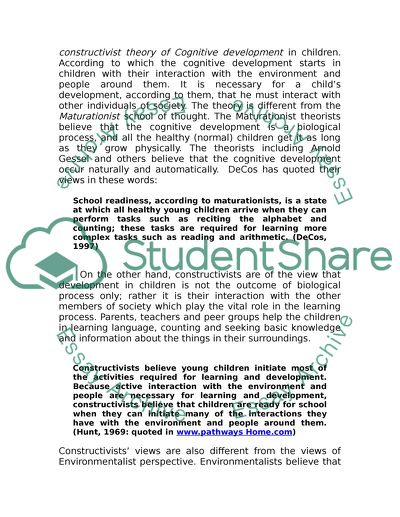Cite this document
(Influence of Social Interactions on Children's Cognitive Development Case Study Example | Topics and Well Written Essays - 1500 words, n.d.)
Influence of Social Interactions on Children's Cognitive Development Case Study Example | Topics and Well Written Essays - 1500 words. https://studentshare.org/education/1536150-how-do-piagets-and-vygotskys-theories-of-learning-and-development-compare-regarding-the-influences-of-social-interactions-in-childrens-cognitive-development
Influence of Social Interactions on Children's Cognitive Development Case Study Example | Topics and Well Written Essays - 1500 words. https://studentshare.org/education/1536150-how-do-piagets-and-vygotskys-theories-of-learning-and-development-compare-regarding-the-influences-of-social-interactions-in-childrens-cognitive-development
(Influence of Social Interactions on Children'S Cognitive Development Case Study Example | Topics and Well Written Essays - 1500 Words)
Influence of Social Interactions on Children'S Cognitive Development Case Study Example | Topics and Well Written Essays - 1500 Words. https://studentshare.org/education/1536150-how-do-piagets-and-vygotskys-theories-of-learning-and-development-compare-regarding-the-influences-of-social-interactions-in-childrens-cognitive-development.
Influence of Social Interactions on Children'S Cognitive Development Case Study Example | Topics and Well Written Essays - 1500 Words. https://studentshare.org/education/1536150-how-do-piagets-and-vygotskys-theories-of-learning-and-development-compare-regarding-the-influences-of-social-interactions-in-childrens-cognitive-development.
“Influence of Social Interactions on Children'S Cognitive Development Case Study Example | Topics and Well Written Essays - 1500 Words”. https://studentshare.org/education/1536150-how-do-piagets-and-vygotskys-theories-of-learning-and-development-compare-regarding-the-influences-of-social-interactions-in-childrens-cognitive-development.


